
With the the week’s testimony ended and his cross-examinations of Beno and Kinsella complete, everyone agreed that Deputy City Attorney Ron Flynn had more than earned the week’s most popular fashion accessory.
This morning the courtroom was only about a third occupied when proceedings began, due to huge crowds pouring into downtown San Francisco and streets directly adjacent to the courtroom blocked off for the celebration of the Giants’ World Series victory. But within half an hour the room was nearly full, just as it had been all week.
Judge Curtis Karnow announced at the outset that testimony would conclude by 1:30, and final arguments would be heard on December 9. In the interim he will consider the evidence presented in the week long trial, as well as draft briefs the attorneys will submit to him a week in advance of closing arguments. He will issue a tentative decision, he said, after he goes through the briefs; hear objections; and issue his final written decision after that.
Evasive
In cross examination that continued from the day before, Deputy City Attorney Yvonne Mere attempted to pin down ACCJC VP Krista Johns on a number of issues relating to the US Department of Education’s letter to the ACCJC in which it told the Commission it was out of compliance with a number of accrediting standards in its evaluation of CCSF. The Commission staffer fended off question after question with evasive answers, but finally had to agree—“Just a Yes or No answer, please”—that the DOE had found ACCJC non-compliant with the definition of “academic” (serving on site visit teams) and with failing to maintain adequate controls over conflict of interest and appearance of conflict of interest. She also had to admit, after numerous stalling maneuvers, that the ACCJC had changed its policies for its commissioner selection process after a complaint filed by the state chancellor in 2010.
The ACCJC then brought forward four commissioners to testify, and here is where things got interesting. Each one, in lockstep response to ACCJC attorney questions, announced that he or she had voted for show cause in 2012 and for termination of accreditation in 2013. Each one maintained that the evidence from the site team report and a meeting with “CCSF representatives” convinced them that CCSF was in danger of going under financially, and that its governance was “dysfunctional”and unable to deal with the situation. Each said they were disturbed, or shocked, or alarmed, that no progress had been made during the show cause period; that usually colleges understand the difficulty they are in during show cause and work hard to address the problems—but not City College.
Sharon Whitehurst Payne, a public member of the commission during this period, said she was “appalled” at the college’s financial condition, and cited the same figure the others did as her sole proof: that CCSF was spending 92% of its funding on salaries and benefits. Like the others, she also insisted that she wasn’t influenced in any way by Barbara Beno in her decisions, nor did she know anything about the CCSF position on the Student Success Task Force or legislation related to it, and it didn’t have any bearing on their decision. She also mentioned non-specific “union issues” that got in the way, and seemed to be under the impression that the faculty had made no financial concessions during this period.
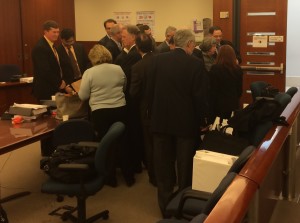
A huge passel of ACCJC lawyers packed up as the day ended
“Intimidating environment”
Each commissioner also insisted that part of what had convinced them to vote the way they did was when the commission invited representatives of CCSF to address them. Frank Gornick said that during the meeting with CCSF representatives—“Supertrustee” Bob Agrella and Interim Chancellor Thelma Scott-Skillman—“they painted a picture of a college in disarray” in terms of its finances and governance. He said they told the commissioners that “there were individuals who were supportive of what needed to be done, but they were in an intimidating environment” created by unnamed but presumably powerful forces.
On cross examination, Gornick responded to a question about the “intimidating environment” comment by saying that “Scott-Skillman and Agrella described it that way.”
Whitehurst Payne thought that it was surprising that no Board of Trustee members had shown up to defend the college, implying that this was further proof of the college’s governance “dysfunction.” When told that only Scott-Skillman and Agrella had been invited to present to the commission, she said that it was her experience that trustees who were “serious” about addressing their issues during sanction would have come anyway, and waited in the lobby for a chance to talk.
Timothy Brown, the only faculty member (from Riverside City College) among the commissioners on the stand, said that Scotts-Skillman and Agrella had told them about the “great resistance” by faculty to implementing necessary changes to Student Learning Outcomes to meet the SLO standard, and here cited the other statistic mentioned by three of the four witnesses—just 28% had complied with their SLO requirement. “Normally,” he said, “all the elements of the institution pull together on show cause; that didn’t happen here.”
The Deputy City Attorney then had Brown look through the site team report, which demonstrated that in their investigation they had found that the college had met or partially met nearly all the standards on which it had been found deficient. She also asked if he remembered the line from the team report about the college’s passionate commitment to correcting its deficiencies. He didn’t recall. She told him this line was stricken by the report’s reader, Barbara Beno. Brown recovered by asserting that the commission must make sure that a college is in full compliance at all times with all standards.
Spectacular conclusion
Current ACCJC chair Steven Kinsella was the last witness to be called to the stand. Kinsella, the president of Gavilan College, gave the same answers to the same questions as his predecessors, with one continuous embellishment: as a man with many business and accounting degrees and certifications, he spoke confidently and in slightly more detail about the budget of CCSF than the others had.
He stated that in his experience “the reason why an organization typically is in financial difficulties is a lack of leadership;” he voted for show cause and termination of accreditation because once a college is in this condition, “it’s just a matter of time before students are affected.” In response to cross exam by Deputy City Attorney Ron Flynn, he said he considered the financial situation at CCSF to have been “dire.” Going one step further than the other commissioners, he said that the point of comparison on the 92% figure was an average of 80% at other colleges.
He told the court that in this situation “a college had to take some kind of action, either raise some revenue or take some kind of other action” to fix the problem. Flynn asked like what? Kinsella responded, “like sell off assets, reduce the number of sites, how to do it is entirely up to the governing board”—neglecting scores of measures the college and its constituents took between 2012 and 2013, not only raising revenues through Props A and 30 but also including cuts, layoffs, and furloughs, and closing several sites.
After questions by Flynn about the passage of Prop A, which brought $15 million in parcel taxes per year to CCSF, and Prop 30, which stabilized state apportionments, Kinsella dismissed—to gasps of laughter from the crowd— the notion that either could improve CCSF’s financial condition.
Flynn then asked about Kinsella’s view of union involvement in the CCSF situation. Clearly caught off guard, Kinsella said that he thought unions “had a tremendous amount of influence,” and that they were engaged in “an attack on the ACCJC’s actions.” Flynn asked if the 80% figure for salaries and benefits is an accreditation standard, or part of ACCJC policy? Kinsella said, “No.”
Flynn took Kinsella page by page through CCSF’s financial documents submitted as evidence in the trial. What emerged over an extraordinary half hour was that Kinsella’s picture of CCSF finances as “dire” had been cherry picked from a couple snapshots in time that ignored not only the effects of Prop A and Prop 30, but the late payment by the state of California of its funding to CCSF, so that what Kinsella characterized as a huge deficit of $25 million dollars one week was in fact no deficit at all after the state made its late payment to the district.
After Kinsella attempted to suggest that CCSF had moved money around in its accounts inappropriately, Flynn asked, “You have no information, do you, that CCSF used funds meant for students for something else?” Kinsella paused, and replied, “No, I do not.”
Flynn returned to a statement Kinsella had made about how CCSF could remain viable after the termination vote. “Wouldn’t losing accreditation mean losing financial aid?” “Yes, but that wouldn’t end the viability of City College of San Francisco,” said Kinsella. At this point Flynn mercifully brought his cross examination to an end.
Judge Karnow thanked the attorneys for their help, and told the courtroom that he would see everyone on December 9 for closing arguments.
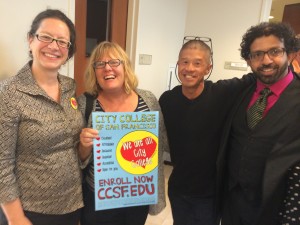


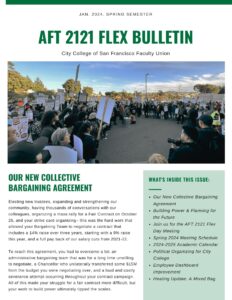
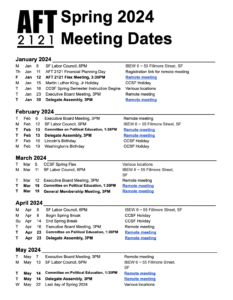
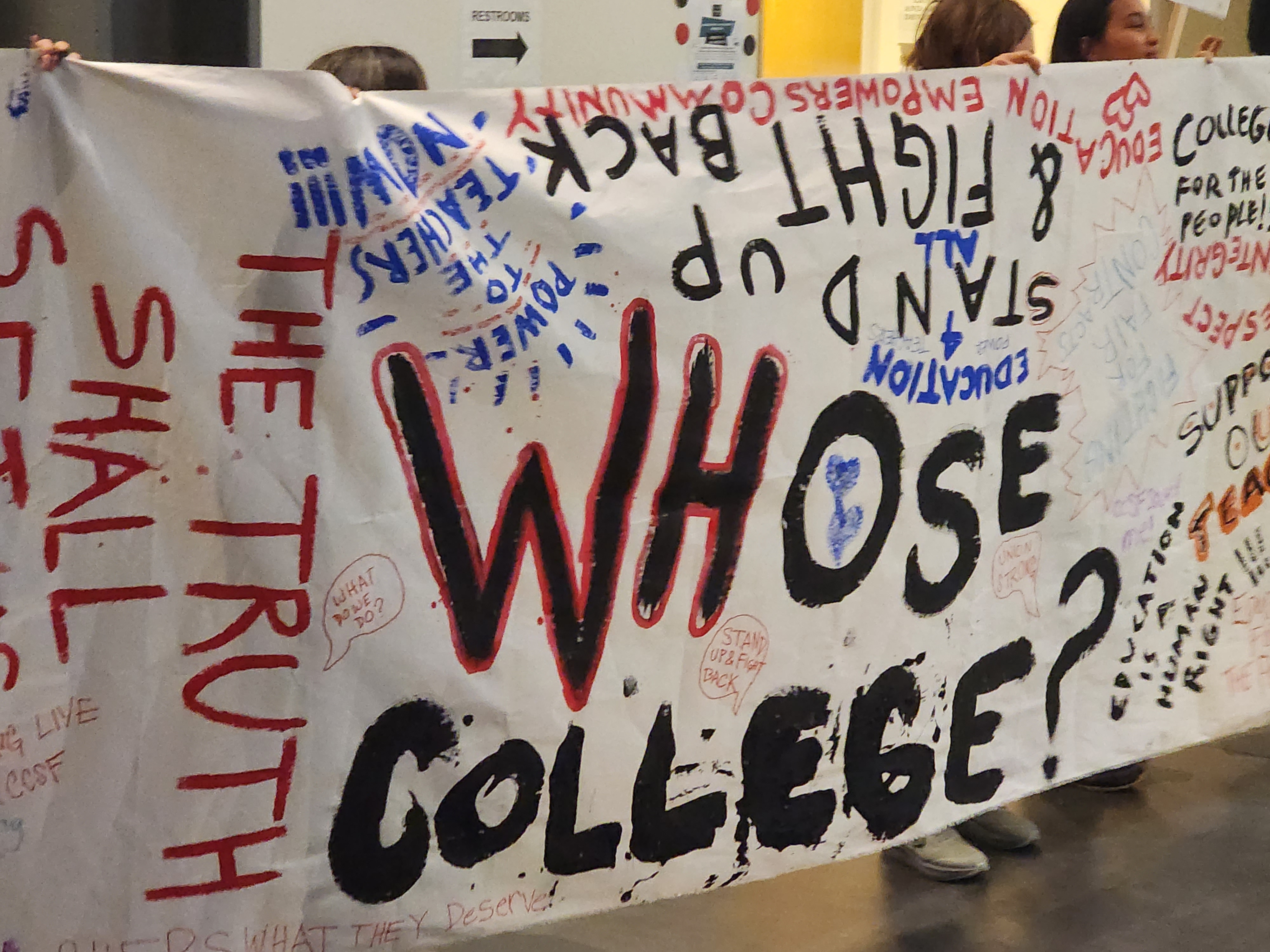
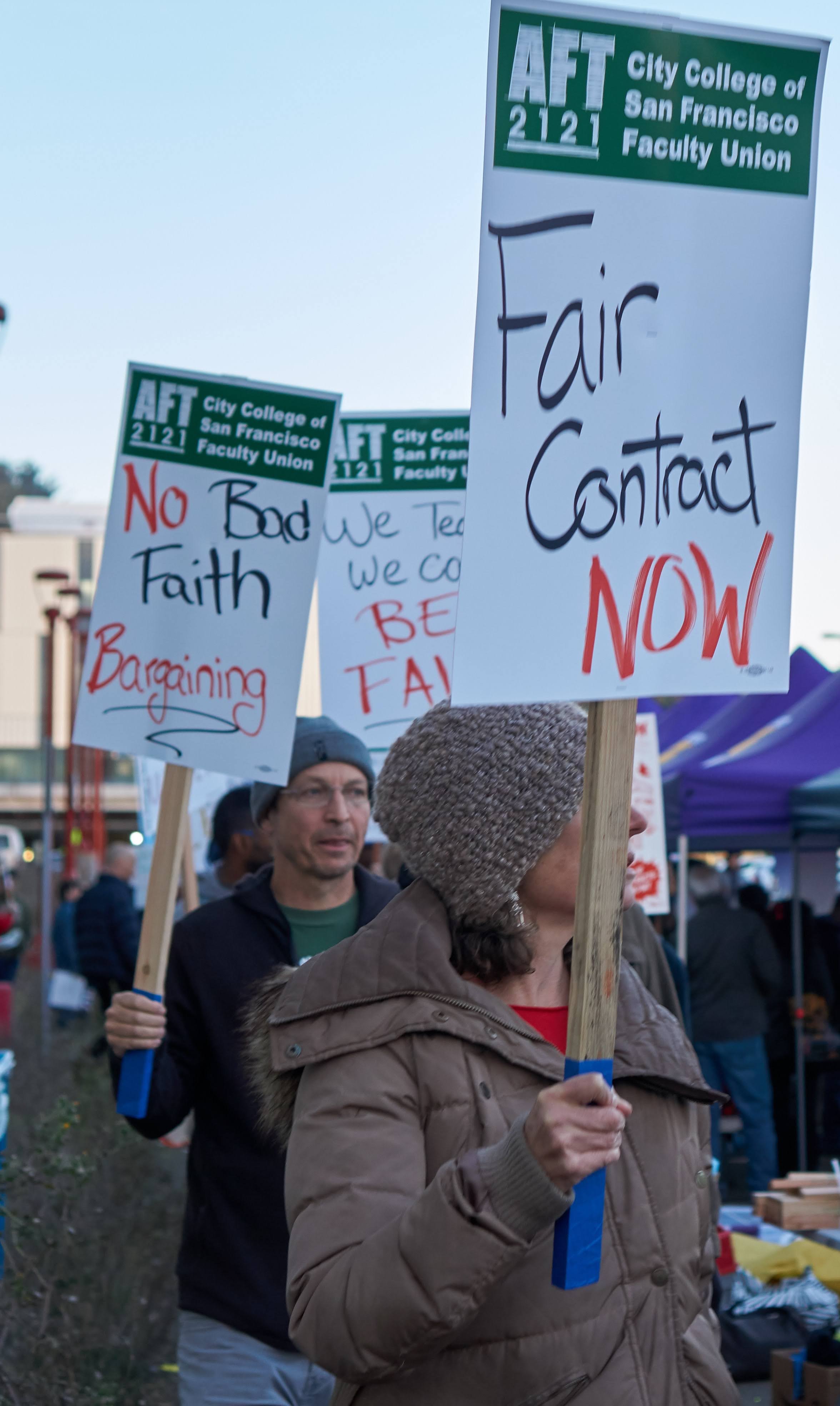
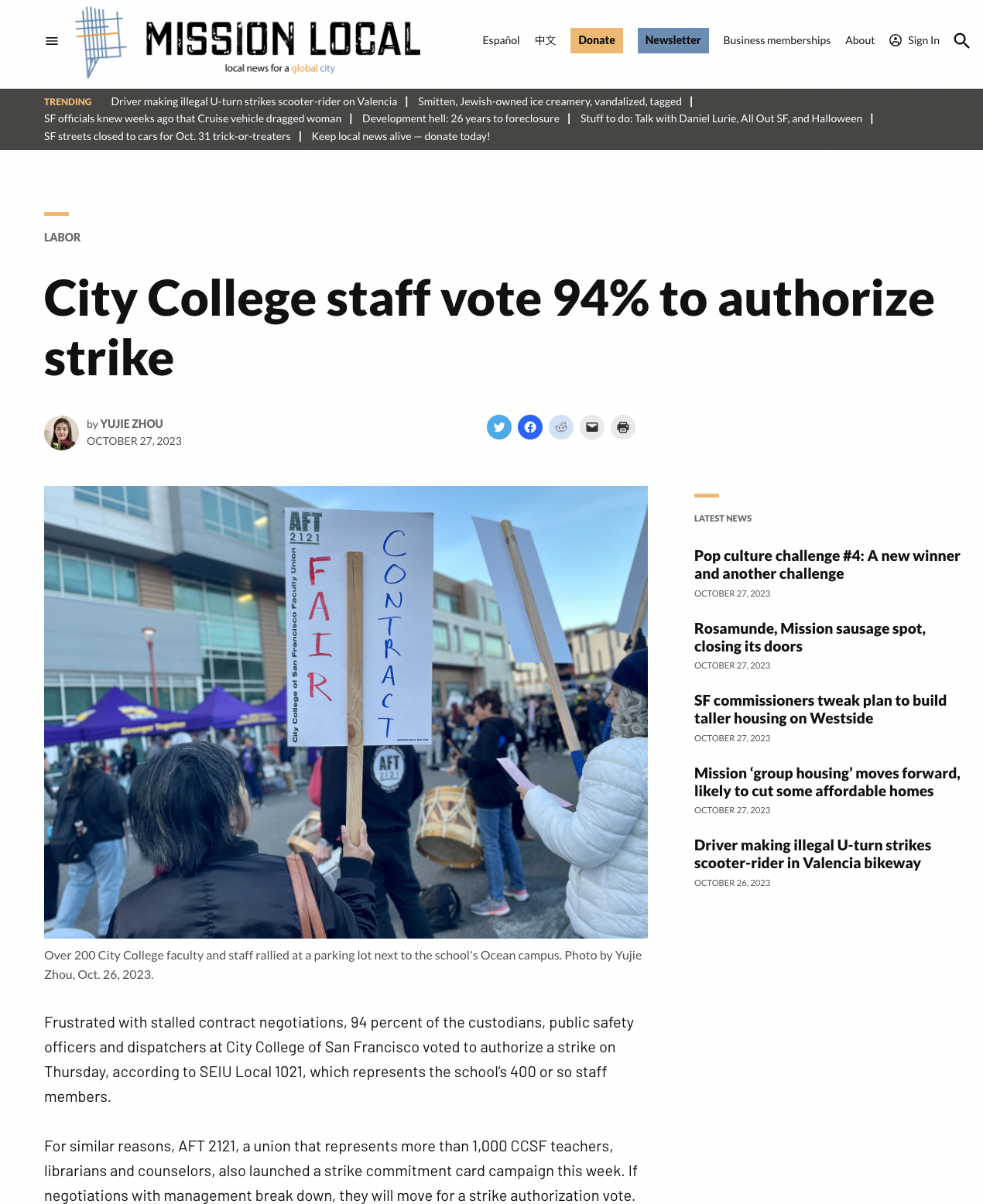
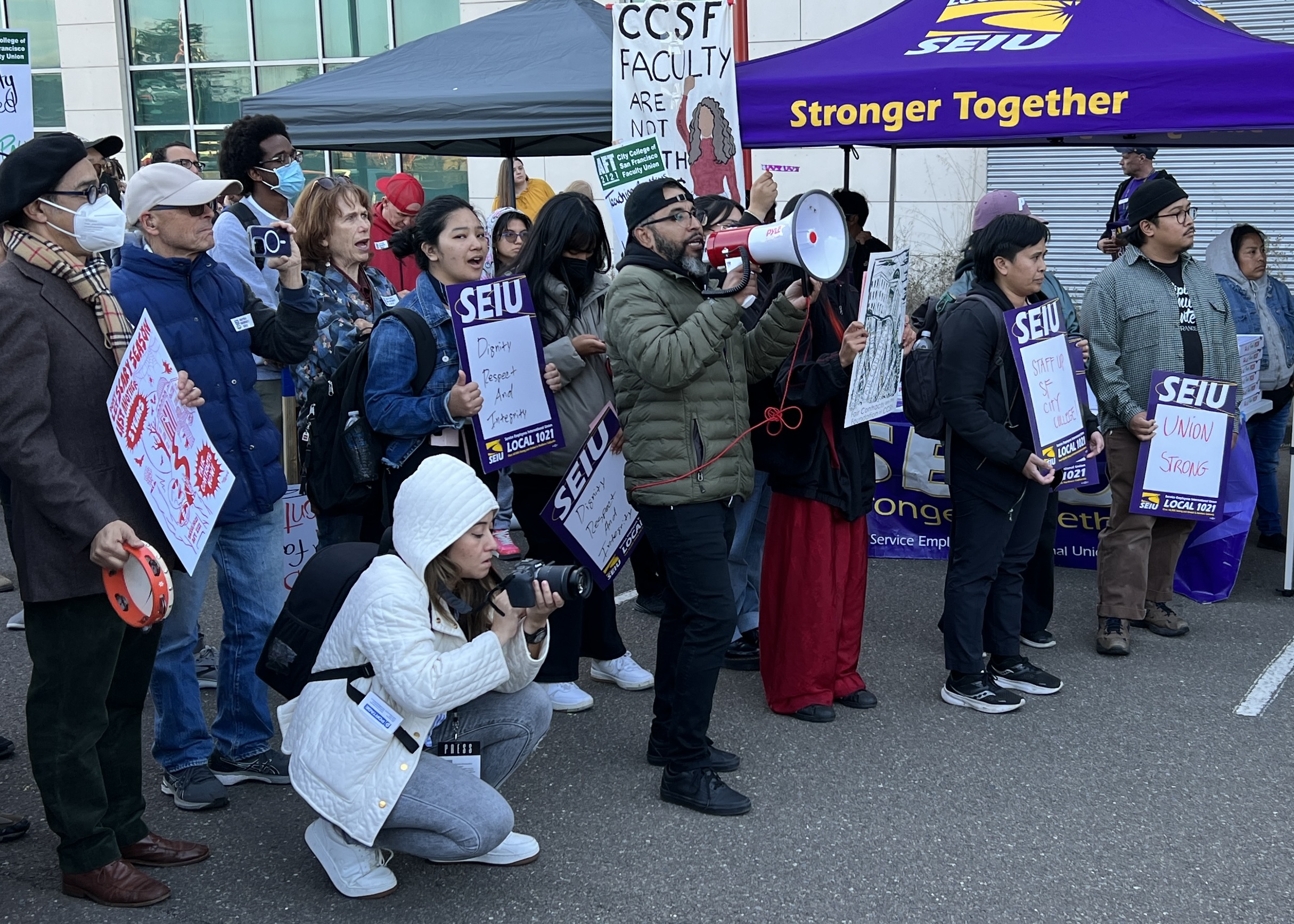
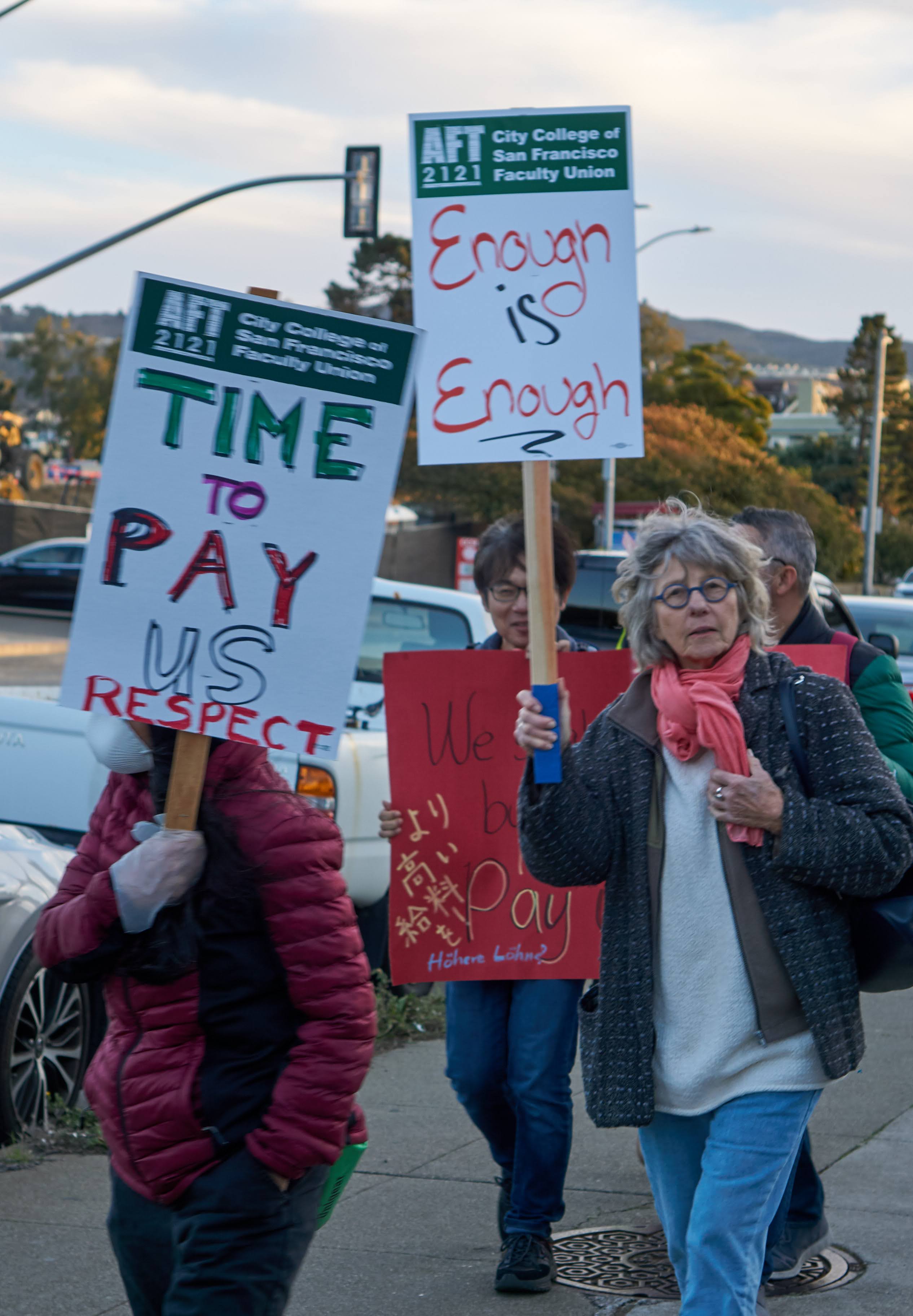
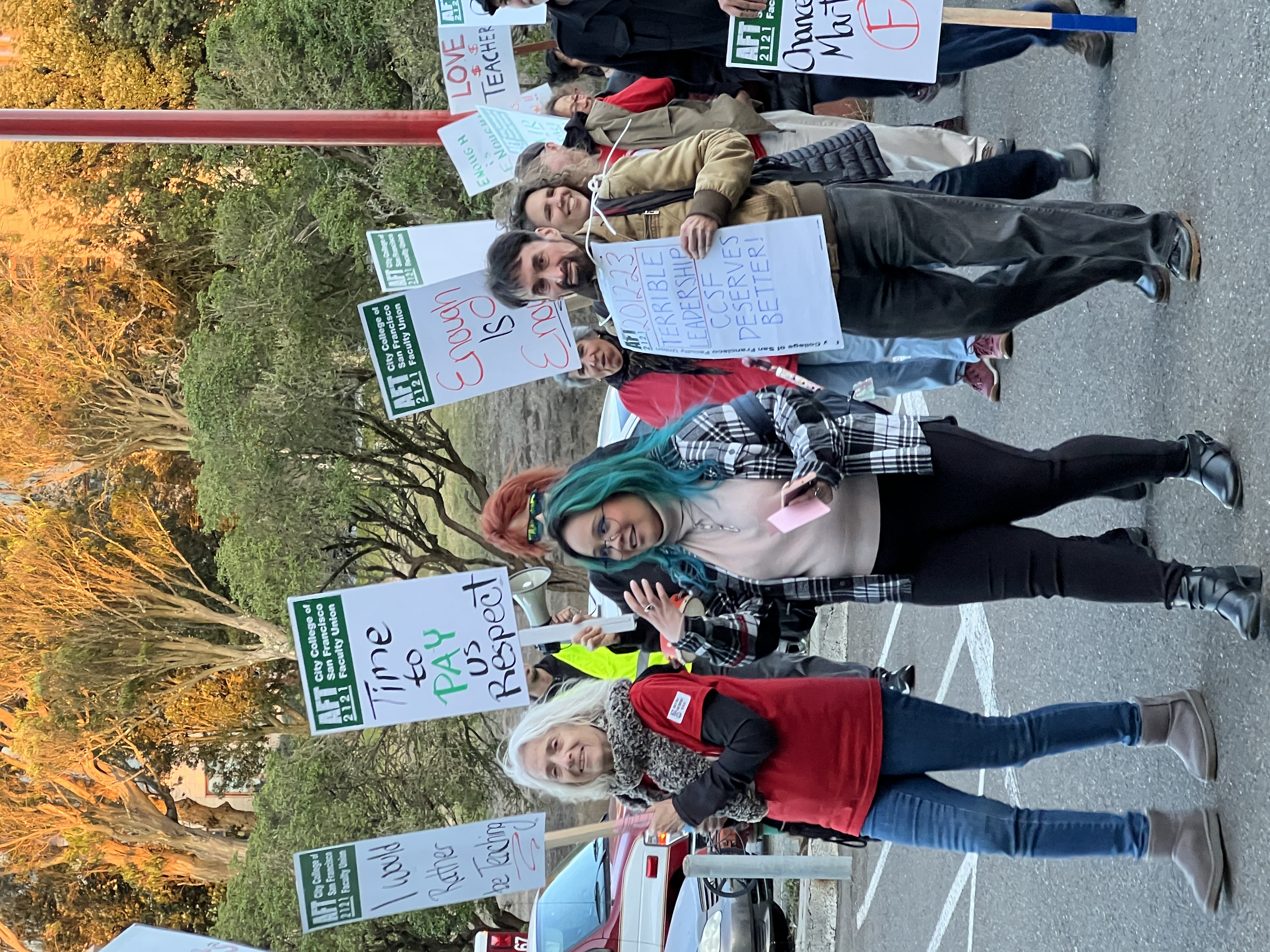
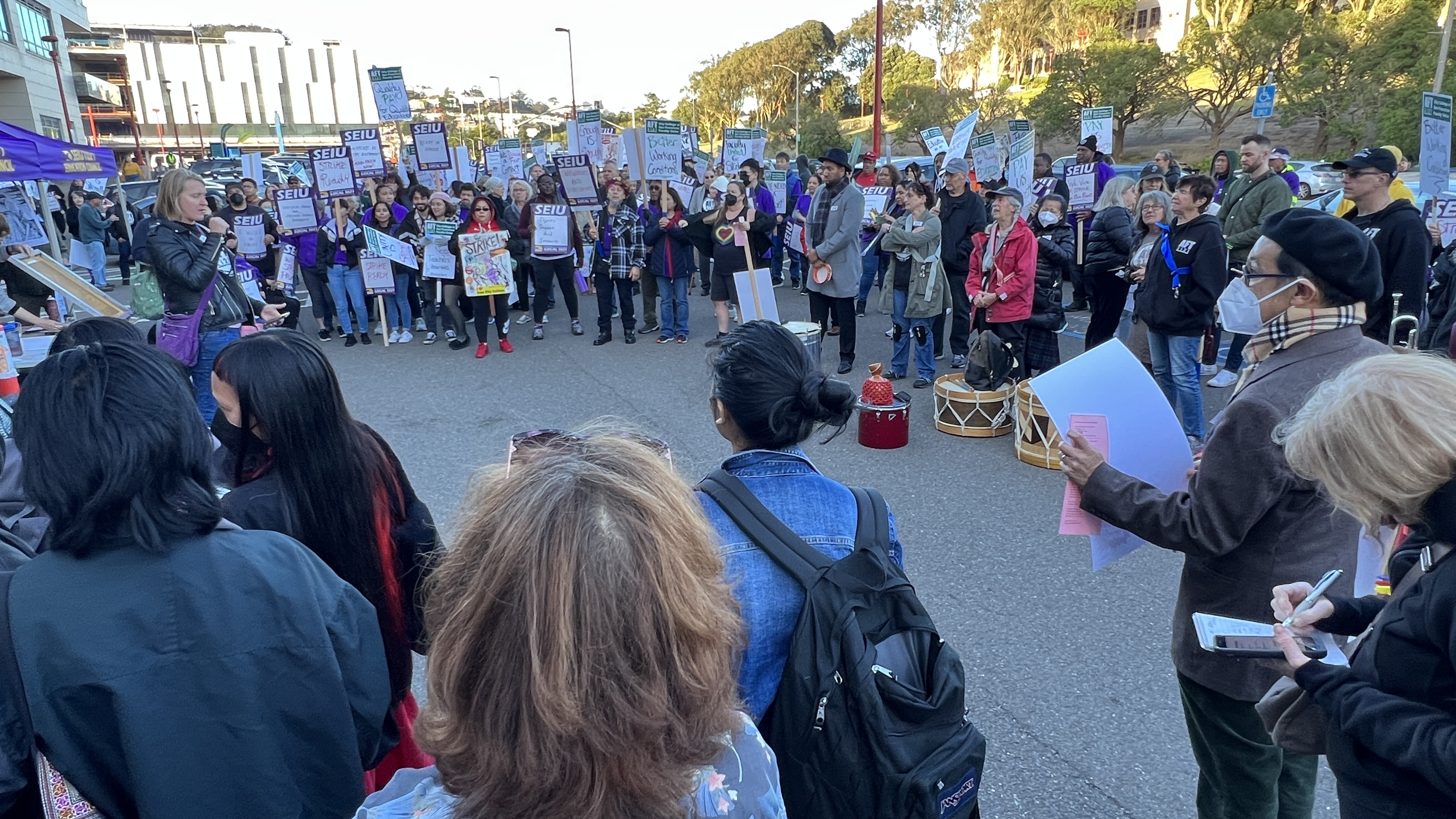
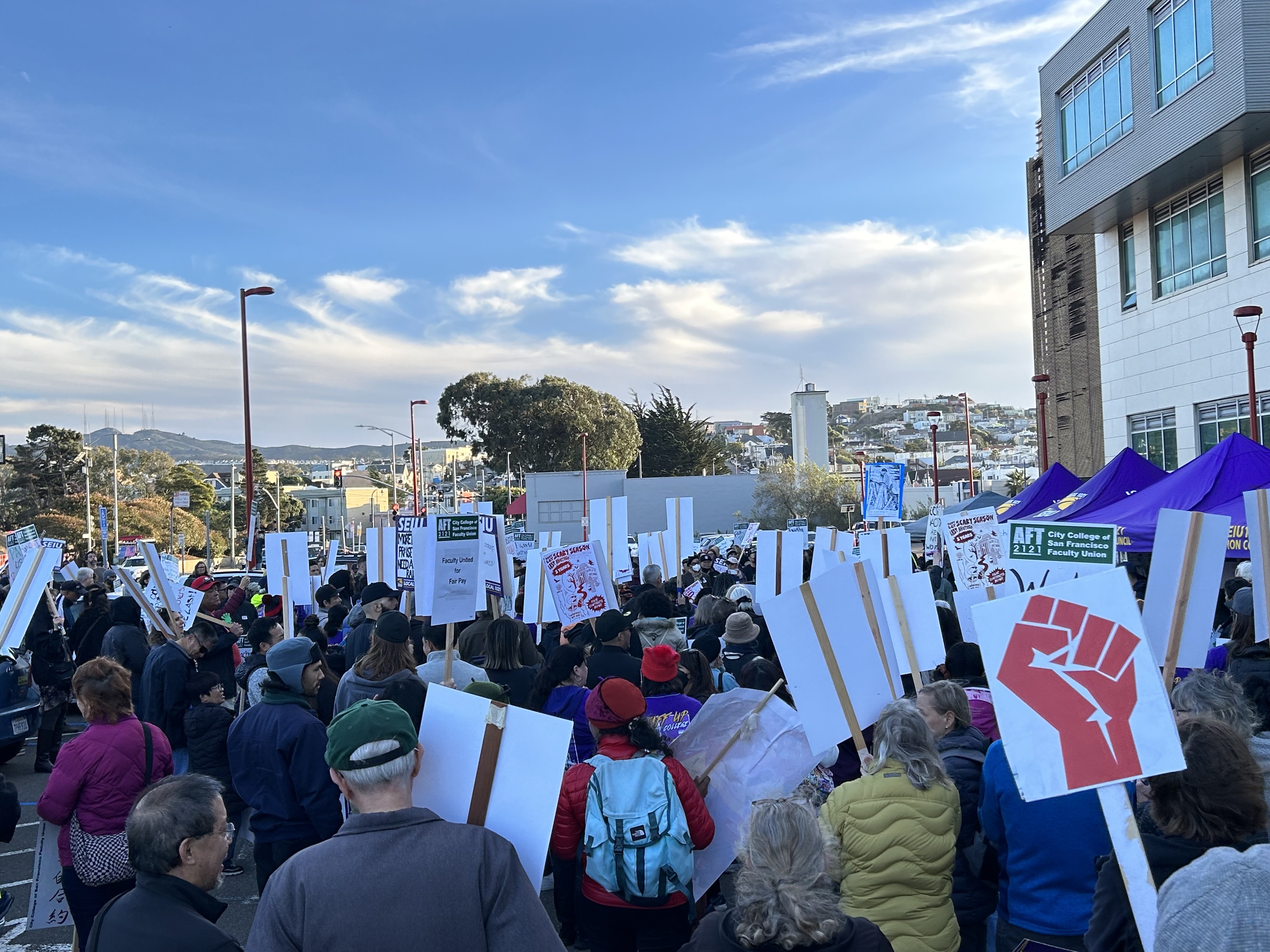
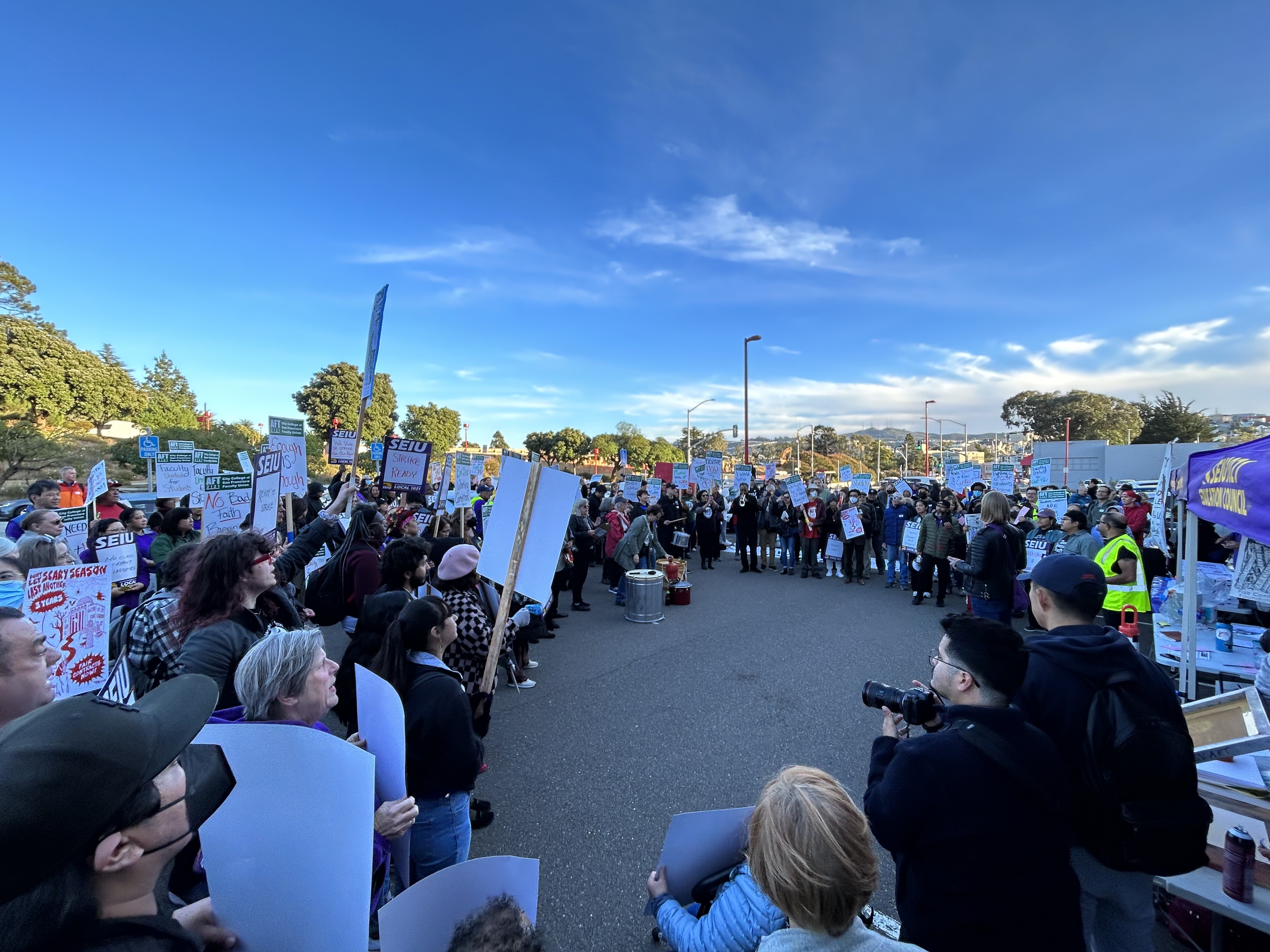
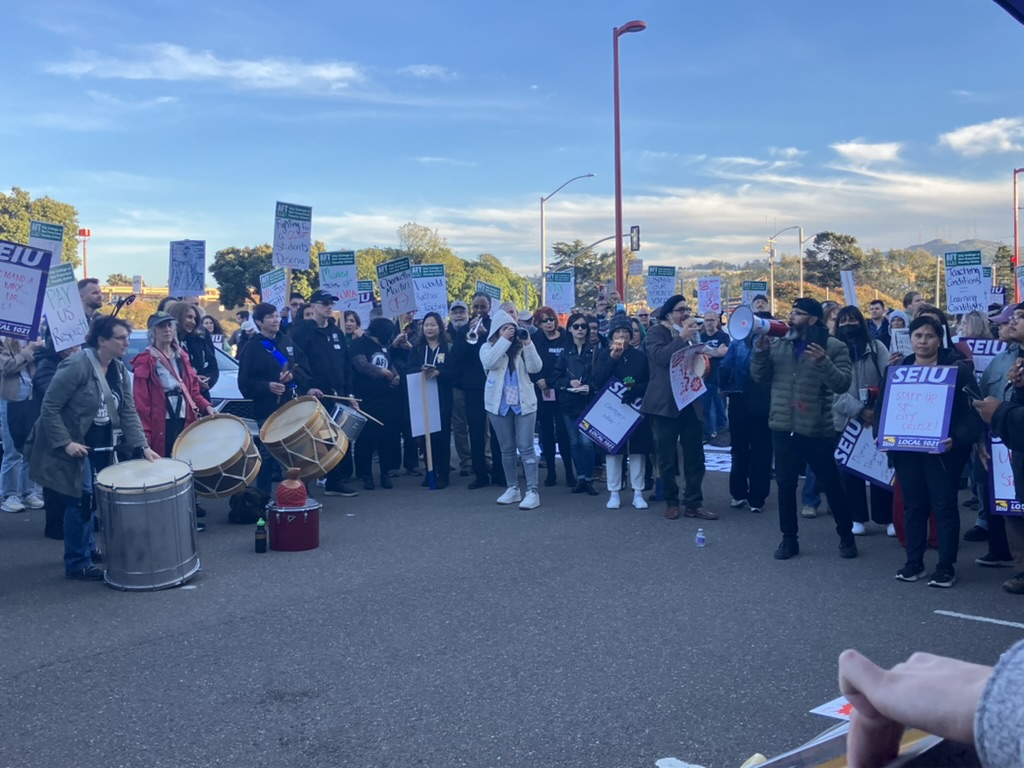
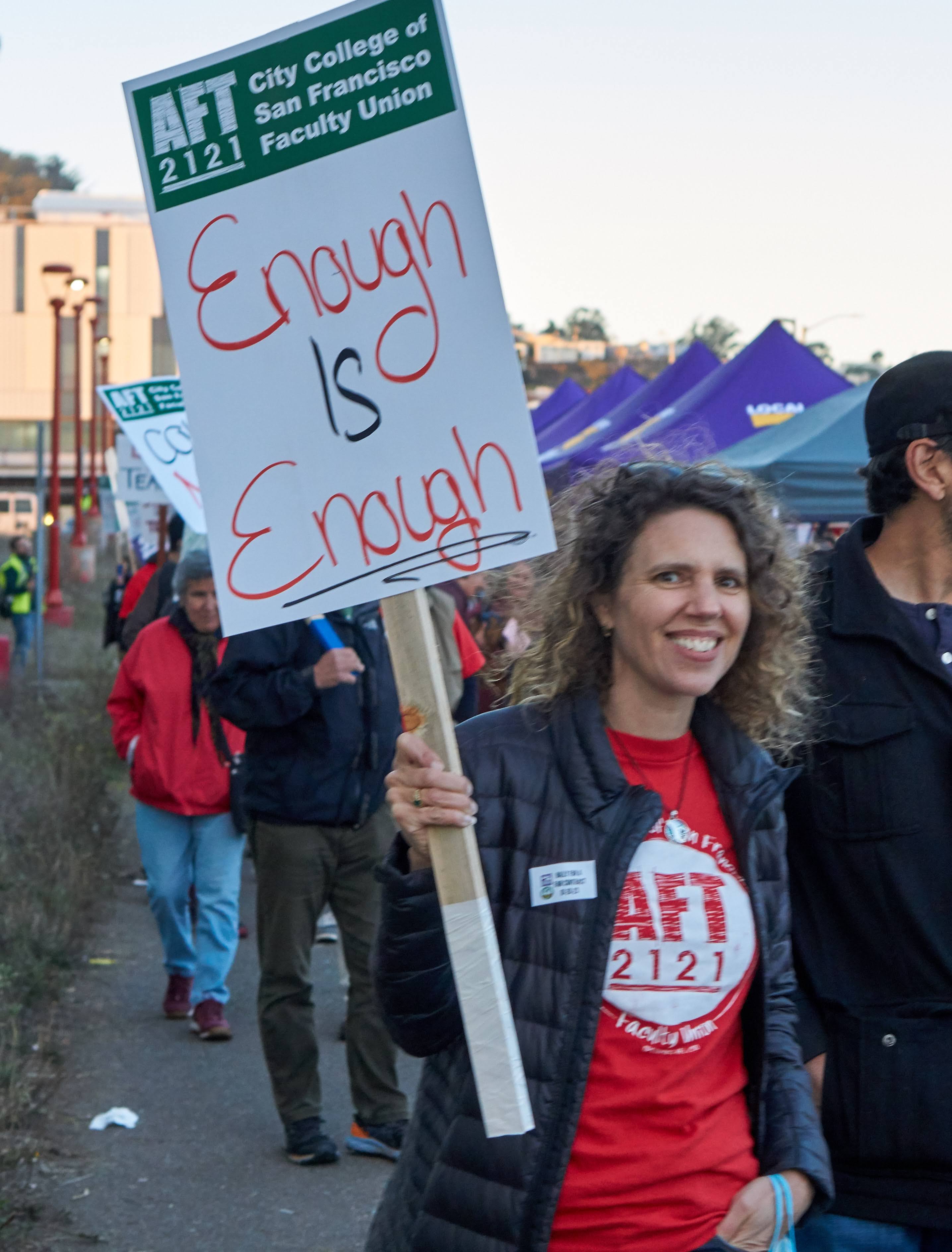

Follow Us!